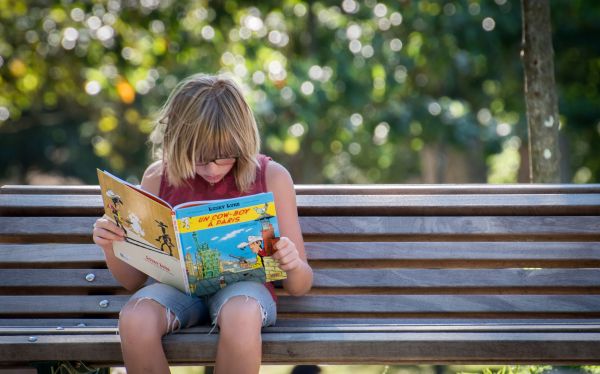
As most of you know, I just took three days completely offline so that I could discover what would be difficult about it.
I have so much to say about that three days, and first thing I would like to report is that there was almost nothing difficult about it.
To my surprise, I didn’t crave the internet at all. I wasn’t dying to check email, judge people on Twitter, or figure out the day’s Wordle. Instead I did my daily work — very little of which requires the internet, I discovered — and simply lived life in the physical world.
This simplicity was disorienting in a way. Many times a day I would finish whatever activity I was doing, and realize there was nothing to do but consciously choose another activity and then do that. This is how I made my first bombshell discovery: I take out my phone every time I finish doing basically anything, knowing there will be new emails or mentions or some other dopaminergic prize to collect. I have been inserting an open-ended period of pointless dithering after every intentional task.
With my phone parked in a cardboard pouch taped to my kitchen wall, this ritual was unavailable, so I again and again found myself hitting a kind of intentionless vacuum, where nothing would happen until I consciously formed a new intention to get on with the day, in a way of my choosing. I can’t convey the strangeness of this feeling — it was like repeatedly discovering that I had misplaced my cane again, only to remember I can walk just fine.
This new mode of living came with another alien sensation: that of having tons of time. The days were long and waiting for me to fill them, like so many empty moving trucks. There was nothing to do but do things.
My attention span did improve noticeably. By the second day, both reading and meditation were far less effortful than they’ve been for the past few years, and I didn’t have to mentally “roll up my sleeves” to begin doing them. This was thrilling, and in hindsight should not be surprising –- my phone habits could only have trained my attention to branch constantly, seeking gratification on demand, and instantly-Googled answers to every question occurring to the mind.
Life seemed quieter — calm and simple and local to the room I was in, like it does after a spa visit or meditation retreat. Even the experience of passive entertainment became simpler and less stressful. If I put on a movie, I would simply watch the movie until it was either over or it was clear I’d rather do something else. Then I would go and do something else, rather than drift away into my phone, where I would browse my WhatsApp chats, skip through people’s boring Instagram stories, or look up how old the actors were during filming.
And thus I learned what was probably the most important lesson of the three days: without the internet, there was no way to collapse into the mushy, nihilistic state of semi-doing. There was just doing. I could always choose what to do, but not not to do.
Checking the Weather
Throughout the three days I wrote on a clipboard things I later wanted to do or look up online. There were surprisingly few instances when I found I needed certain information right away. A few times while running errands I flipped on mobile data to look up an address, then flipped it off, email unchecked.
My mom and I had discussed vague plans to go for a walk, and I wanted to check the forecast before proposing a time and place. I quickly realized I didn’t have access to basic weather information.
I was proud of my elegant, old-fashioned solution. I called and asked my mom if she had seen the forecast. She had, and she told me what it was.
Normally, by that time of day (noonish), I would have checked the weather 17 times or so already, all but one of them a pointless reflexive tic.
The Return of “The World Out There”
The larger goal that inspired this experiment is to figure out how to “put the internet back into a box in the basement” — that is, make it a contained tool I use only intentionally and sparingly. I did achieve this to some degree, and with that came many nostalgic feelings of what my mind used to be like.
The most important of these feelings was a distinct sense that there’s a whole world out there. Not out there on the internet, but out there over the horizon. Out there in this same world are jungle cats, opera houses, subterranean hideouts, breakdancing circles, riverside tire swings, and old women playing mahjong. There are desert caravans and bullet trains and foggy valleys and kangaroos, and I can one day visit some of these things or maybe just read about them.
Reconnecting with this feeling, which I used to have all the time, made me realize what exactly has happened to the internet over the past decade. It used to function as a magic window onto our vast and colorful world, and that made it very exciting to look through. Today, my internet experience is so uniformly shaped by the big platforms that I have little sense that the world it’s showing me is vast or interesting at all. It shows me the same expected things every day – the same partisan opinions, the same jokes, the same forms of recreational scrolling and tapping, the same tone and feeling. To go on the internet today –- at least without very specific intentions — is to swallow another large bucket of the same tepid punch you have every day.
This is not because we’ve looked out the magic window so much that we’ve seen everything by now, it’s because the big online platforms have a certain business model, and that model entails a very uniform experience for its users, characterized by familiar memes, a poisonous culture war, and approval points in the form of hearts and stars. The typical online experience has become a very small and limited thing –- something the world itself has never been.
After spending only a few days away from this experience, the world feels more like a vast and colorful thing again. Everything that hints at the real world out there – what I read in books, what my friends tell me about their lives, what I see when I go places in my city – makes the world seem like it’s bursting with things I’ve never known or seen, which of course it is and always was.
What Happened When I Went Online Again
The first morning I was allowed to use the internet again, I waited until late morning. I already knew I never wanted to go back to all-day reflexive internet use.
My first stop was meant to be harmless enough – Wordle, the trendy guess-the-word game that takes about three minutes and only lets you play it once a day. I felt the usual excitement when those first green-boxed letters appeared, but there was also a background unease to the whole thing. It felt like my life, which had been so vital and interesting lately, was on pause until I got the puzzle. The simple loop of intending and doing I had enjoyed for the past three days was now on hold, if only for a few minutes, until I figured out a five-letter word with “Y” as its second letter. This delay felt not just unnecessary, but borderline nihilistic, and I was relieved to be done with it. In my notes I described it as a “mild purgatory” — like being stuck in human flypaper.
Then I went on Instagram, and had a similar experience. There was some initial gratification at seeing what my friends had been up to. Smiling faces. Cakes. Dogs. Toddlers. Mostly good feelings. But I also had that feeling that I was again delaying the living of life until I completed a three-minute ritual with marginal rewards and no clear purpose. Pictures had to be scrolled through, liked, tapped. Political opinions had to be scowled at, affirmed, or ignored.
I did it quickly because I had many more rituals to complete afterward – Gmail, Twitter, fantasy hockey, WhatsApp banter, chess games in progress. Aside from a few necessary emails and messages from friends, none of them seemed to justify the short but complete stoppage of living and doing that they demanded.
How I Want to Use the Internet
In the days since the experiment, I’ve found myself thumbing through my internet rituals out of habit, and unfortunately the absurdity of them doesn’t hit me as strongly as on that first day back.
I realize now that putting the internet back into a box in the basement in a lasting way will require explicit boundaries, and I will have to practice observing them.
Here’s a list of proposed rules I typed out after that first disorienting day back. These are the boundaries I’d like to observe, given my own routines. If the idea of putting the internet back into a box appeals to you, you might want to try something similar, adjusting for your own habits.
1. By default, data and Wi-Fi on my devices is off, and the laptop is closed. Calls and texts are accepted.
2. By default, the phone is out of arm’s reach (in its wall-mounted holster in the kitchen, if possible)
3. By default, I don’t use the internet before 11am
4. By default, Saturday and Sunday are offline days
5. By default, one or two weekdays are offline days (which ones depend on the week)
6. By default, before turning on data or Wi-Fi, I list on a sticky note what I’m going to do online
7. By default, don’t choose an online activity when an offline one will do
8. By default, avoid taking on hobbies that require regular internet use
9. When you notice you’re ignoring these rules, close the laptop and put the phone away, and choose an offline activity to do for a while*
The “by default” part is important. This list represents the way I’d like to use the internet most of the time. The rules won’t make sense in every situation, but I’d like to follow them unless I have a clear reason not to.
These rules won’t be right for everyone – I don’t tend to overdo text messages, for example, so I don’t feel a need to limit them – but they could be a starting point for your own boundaries if you want to make the internet a smaller thing in your life.
Living Without a Ripcord
Perhaps the fundamental lesson of this experiment was that the vast majority of my internet use simply serves to delay the rest of my life. It’s a way of momentarily escaping the responsibility of using my life intentionally — a ripcord I apparently want to pull constantly.
It was a relief to discover that living without this ripcord quickly came to feel very natural and familiar. It’s as though I used to live this way all the time.
***
*This is where a Cupboard Sheet comes in handy.
Photos by Stephane Yaich, David Cain, CardMapr, Meg Jerrard, Wesley Hilario, Qi Bin, and David Cain
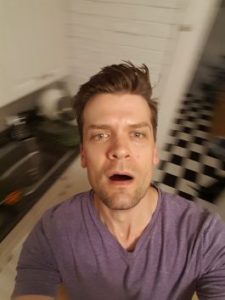
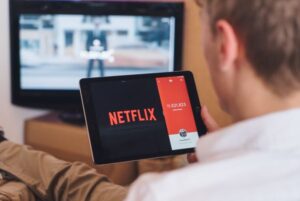
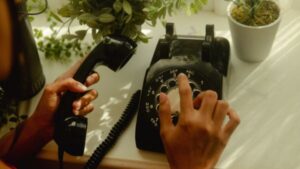


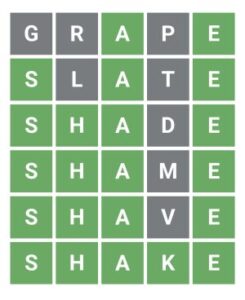

 I'm David, and Raptitude is a blog about getting better at being human -- things we can do to improve our lives today.
I'm David, and Raptitude is a blog about getting better at being human -- things we can do to improve our lives today.
Bravo!
You might find “Digital Minimalism: Choosing a Focused Life in a Noisy World” by Cal Newport to be a helpful and inspiring read.
I used to ride a bicycle to do all my errands, and have since stopped doing so (one too many close calls with cars).
I found it very interesting that no matter what the errand on bicycle, it always felt like a big accomplishment.
Now that bicycle errands are out of the picture, I find myself much more productive. It seems my mind has a generic productivity quota each day, which can be achieved by many means.
I suspect internet usage can also act as a productivity surrogate.
My mind wants to get things done, but it also doesn’t seem to have any criteria for the validity of the task. Important to know this and set boundaries to keep them on the beneficial side.
Now that is an interesting thought. The mind wants to do stuff, and using the internet feels productive, because it involves so much “doing.” It feels nothing like true idleness — something human beings have a hard time bearing — because we don’t have the sense that we’re doing nothing. I think you are totally right.
Two things about this. I am a person who, while watching a tv show, will simultaneously check emails, play spider solitaire and balance my checkbook on my phone. That is, if I can’t fast forward thru the show’s commercials. My housemate who has dementia, sits and, thinks? I don’t know. But she is serene and I am not. I ask if she wants me to put music on, or find a sitcom to watch and FILL THE TIME, but she says no. With no distress. I def need to take a page from her book.
Second, in a previous post some folks mentioned how certain skills had gone fallow. Adding and navigating. In the latest Amazing Race episode followup, Kim and Penn Holderness, the oldest contestant couple at 50+, opined that they were usually the first to arrive at a destination because they had grown up without a GPS and knew how to read maps. In a world where governments conduct war through hacking and cyber terrorism, we might better keep some of these skills honed. (And buy a complete Foxfire series-in paper form!)
I am 70 and just as addicted as a 12 year old. This has to stop.
This is brilliant and feels true. Internet activity definitely feels like a productivity surrogate much of the time. Your mind feels like it’s gotten things done, even though nothing particularly valuable or worthwhile has been accomplished.
I’ve requested it at the library. Cal Newport has been onto this for years.
It’s a great book – have considered buying a copy so I can have it to refer to when I need reminders – hope you enjoy it!
I love this! Your rules seem very helpful, I think I’m going to try out 1, 2 and 6. Earlier this week I taped two notes to my laptop: one says “read a book instead?” and the other “what are you getting on to do?” to remind me to be intentional.
The other way I’m making the internet a quieter, smaller place is getting most of my updates via RSS instead of social media — old school internet style. Most people blog a lot slower than they tweet so there’s less content to drive that dopamine rush. Have you checked out the Indie Web? https://indieweb.org/discovery lists some places to find people who post on their own site rather than only on social. Blogroll.org also has a curated list of blogs to follow.
I recently read We Should Get Together, about friendship, and it talks about how people feel like they’ve caught up with their friends because they see their social updates, but they usually wind up actually interacting with their friends less and feeling less connected to them – so another reason to spend less time on social media (I think Seek You might have talked about it too.)
Ah Indie Web looks like it might be what I’m looking for — a way to browse the internet without being funneled into major platforms. Lovely, thank you.
I’ve often been surprised at how many people still use RSS. It’s encouraging. Whenever there’s a problem with my RSS feed, I hear about it quick :)
He’s not going to reply… he’s offline and checking comments isn’t on the list of allowed online interactions… :)
Great piece, David. I’m impressed and a bit surprised by your adapting so quickly and wholeheartedly to shutting down all digital connectivity. In fact, it intrigues me enough that I’ll give something like this a try. Thanks for the inspiration.
I enjoyed reading this but I wonder how the attention span interacted with your ADHD? I have those tendencies but I’m not on medication, (my diagnosis is autism) and I can remember even before phones that I would be reading books or packaging in order to “ripcord” from my current moment any way how.
I do want to try out your tactics but I wonder if an important part is getting underlying conditions dealt with…
I wonder the same thing. Before the internet and smartphones, the biggest complaint from adults of authority in my life was that I was constantly buried in books or anything that I could read and use as an avoidance for doing other things.
This was me too. Reading helped me avoid the discomfort of real life.
My assumption is that my increase in internet use during the pandemic has exacerbated my ADHD symptoms, and in fact that is probably what made it getbad enough that I realized I had ADHD.
I have always used the ripcords of daydreaming and reading random things like cereal boxes, but nothing is as perfect a ripcord as a smartphone.
By all means get the underlying conditions dealt with to the extent you can, but I don’t see any reason to wait on reducing reflexive internet use.
Thanks for writing this! How come you don’t just rip the band-aid and delete your social media accounts and game apps? It seems that they give you very marginal benefits and cause you a lot of anxiety and wasted time and energy. I have deleted all of mine except for WhatsApp.
I have deleted some of them. Being a blogger there are non-marginal benefits for having Facebook and Twitter accounts, but neither has been very compelling to me for a long time so I don’t worry about them. However, there are a lot of accounts and apps that are worth using in an occasional and intentional way.
Also, deleting them outright, in my view, is refusing to deal with the real problem, which is reflexive and immoderate use — not use in and of itself. If I delete the apps I’m prone to checking too often, I never really addressed the problem, I’m just hiding from it.
I’ve tried this a few times when I find myself overusing particular apps. Can be helpful to redirect behaviour/attention.
However, if I don’t untether from my phone, I end up downloading new apps as alternatives. (Got hooked on mobile games when I went on a social media diet)
I don’t really agree with this particular point: avoiding temptation is a key component to addiction recovery. It is not less “noble” for a recovering alcoholic to avoid buying any booze; conversely, keeping booze in one’s cupboard is a surefire way of increasing one’s chance to relapse. Similarly, deleting distracting apps (chess, Reddit, other social media, news apps…), blocking them, are good ways to avoid being submitted to temptation and to have to exercise willpower (a very fallible method). In a way, it is already what you are doing by turning off wi-fi and data by default; it would be possible for you to not check your phone even with wi-fi & data on, but it would be much harder.
Otherwise, this particular article was great. I spent a couple of hours (this seems ridiculously low when I write it) without internet yesterday evening, and when I read your article just now I could identify with a lot of what you wrote : the time stretching for much longer (now that entire swathes of it have stopped disappearing in this semi-vegetative state of “semi-doing” you describe), this weird “intentionless vacuum” after an activity is over and before another one begins. I will draw inspirations from the rules you propose, and I sincerely hope that you will be able to follow them yourself.
For Instagram, I can recommend deleting the app and only accessing it through your web browser. It makes for a nicer experience (no ads in the browser version!), I use it way less, and I find that it only takes a short while until I‘ve had enough, vs endless doomscrolling when on the app.
sort of like alcoholism….a recovering alcoholic doesn’t say, ‘oh, i think i’ll just have one drink, that won’t hurt’….=) same thing. this tech. stuff is super addicting. =)
Very interesting (and inspiring) to read these experiences.
@Ron – I am entirely off of social media but I still will find plenty of things to mindlessly scroll. Unfortunately.
Good Morning David
Thank you for this blog post. It hit me at a good time where I am trying to be less distracted. For the month of February I am avoiding YouTube. January was Twitter.
This blog posts pushes me to go bigger.
Also, I second reading Cal Newport’s book Digital Minimalism and taking a 30-Day Digital Detox.
YouTube is one that I was using a lot these past few years. I would put on videos while I did other things, like cooking. Mercifully they changed their recommendations algorithm to show the same videos over and over and it became a lot less compelling. I’ve barely used it since the experiment and it feels like I’m done with it. There’s only one channel whose videos I want to watch, and they’re good enough to watch with undivided attention, like a movie (Red Letter Media, FWIW)
Red Letter Media is phenomenal! I didn’t “get” them when I first watched them but now they’re one of my favourites.
Re Algorithm: same thing happens when you take a break from Facebook or the other apps. The same things keep coming up constantly because it thinks you haven’t “seen” them if you haven’t interacted with them. I stopped using Facebook for a few weeks and now my feed is an utter mess of group page posts and ads and it has made it so much easier to avoid the app.
Speaking of explicit boundaries…..
In my town, everything south of the Arkansas River was once part of Mexico! I drive over the river a couple times per day. I think my iPhone is just about ready to take the plunge….
Many thanks for another fine piece David !!
I love this image
This one really spoke to me and that last bit about the vast majority of screen use is simply to delay the rest of my life. I had to print that and cut out and put it on my desk. Can’t tell you how many times I will pull up a word game or check social media so that I don’t have to face what I really need to deal with. I am always happy when we are traveling and there is actually no cell service…it’s a delight. I think it is easier if you really did live this way before but my teenagers do not have that perspective because it has been part of their daily lives for most of their life. Thanks for sharing.
“This one really spoke to me and that last bit about the vast majority of screen use is simply to delay the rest of my life.”
100% agree. One barrier I put up was to only check my email at certain times of day. I also declared “content bankruptcy,” and unsubscribed from dozens of newsletters/websites. The result is that opening my inbox is fun again.
That is a great idea
One of the many insidious factors here is that most of the ways we use the internet only takes a few minutes — why not delay another 45 seconds while you check Instagram again or play another word game? It seems just negligible enough to rationalize.
I really wonder how today’s teenagers are going to recover from this wild west era. I feel fortunate to have been 30 before I even got a smartphone, but I’ve still become very wrapped up in it. I can’t imagine having had one as a teenager.
Although not the same thing, but the same neighborhood: for many years, I gave up Facebook for Lent. At the end of Lent in 2020, I gave it up altogether.
It’s been like having left a noisy room.
Yeah I’ve been over Facebook for a long time. It’s mostly noise now. But there are always others lining up to replace the apps we lose interest in.
I definitely needed activities to replace the time spent on my phone. At first it was like staying off my phone just created a huge empty vacuum that would immediately pull me back to my phone. After a few days of reflexively unlocking my phone I finally started thinking of other things to do instead. The results for me were that I read an entire book in three days and started another, exercised every day, spent more quality time with my family, played violin, etc.
Also, I very much enjoyed having to look out the window and step outside to see what the weather was like and how cold it was that day.
I also realized that interacting on social media doesn’t actually count as being “social” at all. If all my socializing was scrolling through social media and liking or hearting things, leaving a passing comment or two, then really I haven’t made any real connection with anyone. Only through text, calls, video, in person do I feel like I connect and socialize.
I’m at risk of going back to old habits because I’ve sworn off Reddit before only to end up back on it for hours a day. So I guess I should make myself some rules, too.
Thanks!
That is an important point and I should have emphasized it — you need replacement activities lined up. I made good use of my cupboard sheet (link at the end of the post), which is just a list of things I can do at any time that tend to make my day better, even if they’re pretty easy — journal for a bit, stretch, pick up a book, make a batch of healthy food. Without replacements, that vacuum feeling hits hard, which I guess says a lot about how big the role of reflexive internet use really is.
The illusion of online connection is another big piece here. Just seeing your friends’ words and pictures seems to satisfy the urge we have to see them, but you’re right, it’s not an interaction.
Great discovery….the doing, so much time. I loved the phrase like being stuck to flypaper. Wow!
That first day playing Wordle, it was such a strong feeling. I felt so immobilized, even though I was choosing it.
David, I loved reading the results of your experiment. I’ve dabbled in offline living and always find it rewarding. I don’t feel desperate to go back on social media or anything like that, but there’s always a nagging feeling that someone is going to be upset if I don’t reply to their email or text as quickly as I usually do. Even going 24 hours without replying to emails seems to cause people anxiety. I’d like to hear how the people in your life reacted to you being unavailable online. You didn’t seem to mention that at all in this article.
You’re right, I didn’t really get into that, and the reason was that there was little evidence that I had disappointed anyone by being slower to respond to messages. The world just went on around me and I don’t know if anyone noticed. The only message I regretted missing was my neighbor asking what I was doing that made so much noise — turns out it was my big heavy typewriter shaking my rickety table. However, if she had phoned instead of expecting me to check WhatsApp frequently, I would have known immediately. I think that’s the key — tell the important people to call if they need something. I think we overestimate how badly the rest of the world needs us to be online all the time.
I’m old enough to have lived the majority of my life without the compulsive intrusion of the virtual world now shadowing us constantly online, and often in our pockets. Many of my original concerns about the direction this was likely to go have been fulfilled and even exceeded. There is such a thing as the human scale, beyond which we do not operate well or healthily. The Metaverse™ is a red herring across the path of authentic individual development.
I loved this article! Raptitude at its finest!
I recently returned from a 10-day cruise. I refused to pay for the ship’s exorbitant internet package, and there were only a couple brief moments when I could find open WiFi at a port. (Not that I checked very often – I wanted to enjoy the port!)
After I returned, I discovered that not many of the emails, texts, Facebook posts, etc. I received were very important.
I brought my laptop. There were four days at sea, and since I’m a writer, I spent 2-3 hours on those days writing, while sitting on a nice shaded outdoor deck. It was a beautiful, relaxing environment with relatively few distractions. I wrote a 10,000-word short story and got some good work done on other projects.
Your article resonated with me in so many ways. I am going to implement some of your rules.
Thank you!
I’ve had a similar experience after meditation retreats: I expect my inbox to be blowing up with critical messages, and there aren’t a lot of them. As well, the more casual ones aren’t as interesting as I expected them to be.
I don’t have data on my phone and the calling method is what I rely on. (Such as one time when I got lost) Helps to have siblings who do have data.
I tried having data for a month, but ended up just using it for social media on the bus so it didn’t feel worth it. (My pre-paid phone bill averages about 5-10$ a month)
Can relate to this though especially as I find it hard to sit through movies or tv shows. Might try putting my phone far away the next time I watch something.
I de-activated Facebook for the last three weeks. I see that of all the pages I am on (1 for each area of interest in my life, ) I only really miss two at this time. I reactivate on my rest day to check what’s been posted by my curated list of twelve friends and it takes me about 15 minutes then I deactivate again till my next rest day check-in.
I liked this article. I clicked the cupboard list link. I Loved that article. I. Going to make one for myself, and help my daughter make one too. Thank you.
The cupboard sheet is such an important tool to me. Puts me back on track at least one a day.
Thankyou, David, for a fascinating account of your experiment. I grew up in pre-Internet days – I got my first computer when I was in my 40s and used to power it up once a day to look at the 2 or 3 emails that would have arrived in the previous 24 hours. What did I do with the rest of my time? I read more than I do now, I watched more TV, which was probably the mindless screen-staring equivalent of the Internet now. I phoned or even wrote letters to friends who weren’t nearby. It was much more difficult to stay in touch with friends on other continents – those relationships have been deepened by regular contact via email, FB and, most recently, Zoom. I had to go to the library to look for information. Our online world has many advantages. But…my attention span was better, I was less easily distracted, I wasn’t constantly reacting to the latest funny, infuriating, sad, shocking post or photo. I’m trying to take back control. I don’t go online till I’ve been up for about 3 hours and I have a no-screens-after-9pm rule (which I’m about to break!). I try not go on social media except at set times – after meals is my rule. But even so, there tends to be a reason to pick up the iPad between each task through the day. Your article shines a light on the dangers of the addictive nature of the shredded concentration and the constant small online stimuli that our brains enjoy so much. I need my mental peace and focus back. So I’m going to work out a few more rules to limit my exposure to this online drug…
Thank you for sharing your experiment David.
I have done similar things, and decided to to own a smartphone.
The internet gives me a disorientating global feeling, and when i unplug i am in a local tribal setting.
As people, i do not think we do well considering global life, and we work better in local tribal life.
Simon
Edit above should read…NOT to own a smartphone!
Great read David, and so encouraging!
At the end, I thought it was sad, when you mentioned that is wasn’t too difficult to move out of the internet daze and life felt like it used to, it was a comfortable place from the past.
I say it was sad, because my grandkids, at 5 years old, are so plugged into the iPad screen that they won’t grow up knowing a Real Life never occupied by the internet.
I love this! I locked my phone in the safe for 24 hours last year and I loved it. But since then I’ve managed to fall back into some bad habits. While I use my phone less, I still find myself pulling for it in those semi bored moments. You are spot on about making new “default modes” and I need to do a better job of thinking those through and putting them in place.
Thank you for sharing this, David. I tried the experiment with you, but I went for 7 days and was slightly more lax on some rules (I kept using my fitbit and food trackers because I’m training for a marathon). I had already removed social media from my phone several years ago, and I wasn’t in the middle of playing any games, so the main thing I noticed was that I feel most compelled to aimlessly browse the internet when I get tired but don’t want to get off the couch to go to bed, or in the morning when I wake up but don’t feel like getting out of bed. That was in interesting finding because deep down I knew it, but never acknowledged it.
I’m taking classes online and found that closing out all the browser tabs except what was needed for school was immensely helpful in keeping me focused or making me take a real break when my concentration was lagging.
But I also had some difficulty in participating in life without using the internet. My gym requires you to sign up for classes online, and posts the track schedule online. I arrived and the track was closed for maintenance! I needed to book a hotel in another state and had no idea how to do that without using the internet, so I didn’t and nearly missed my deadline to do so. It was dispiriting to realize how deeply the internet has insinuated itself into our lives.
I got a lot more reading done than I expected, which was a nice benefit.
This has given me some things to think about. I like the idea of having rules about internet use, but I fear that they are only as effective as my willpower, and I’m most prone to using the internet suboptimally when my willpower is lowest!
” I noticed was that I feel most compelled to aimlessly browse the internet when I get tired but don’t want to get off the couch to go to bed, or in the morning when I wake up but don’t feel like getting out of bed”
This is big for me too, and I think it’s a major clue — I use the internet when I don’t want to move forward with life if it entails some unpleasantness. What did I used to do in those moments? I think I just got up, and it was less painful because I didn’t have the means to avoid the discomfort.
“I like the idea of having rules about internet use, but I fear that they are only as effective as my willpower, and I’m most prone to using the internet suboptimally when my willpower is lowest!”
I think that everyone can relate with this, sadly. But I also think this is precisely what makes the rules so important. By establishing default boundaries, you don’t have to decide at the weaker moments. it’s been previously decided by yourself, to help you in those very moments!
Here’s hoping we can manage! Also, yay for the marathon! =)
David, my namesake, I have followed your work for ~8 years… since late 2014. Sometimes I emulate your exercises and experiments, and I have shared your articles dozens of times with friends, peers, and clients. Would you consider adding a LinkedIn share/button to your blog? I have sworn off FB, IG, and Twitter… I am active on LinkedIn. It’s not anything major, and I’ll continue to work around it, but I figured I’d ask. Your ideas have so much utility for my professional network, and you help cut through the clutter of bitcoin/crypto content nonsense that I see too often, though I’m sure some of it has merit.
Hope you don’t see this or respond until after the weekend ;-), but be kind and forgiving to yourself if you do.
Gratefully,
Dawid
I don’t know much about LinkedIn, and I like to keep the auto-share buttons sparse, but you can just copy and past the URL from the post and share it on any platform. It’s easy to do on both desktop and mobile
I appreciate the minimalism inherent in your answer. I’ll continue to do exactly that. Thanks for KISS: keeping it simple, silly!
I have unplugged to varying degrees a few times in my life. Cable TV in 2005, social media around 2014, addictive app games in 2020. I’ve unsubscribed from all the things that bloat my email inbox once every couple of years. Raptitude is one of the few (right now maybe the only) non-essential thing that pushes to me, and I am grateful for it – and for your sharing your thoughts all these years. I tried to figure out how long I’ve been reading your writing, but as I get older, the idea of time and timespans and memory grow more difficult to reconcile and become less important. In this present, I appreciate these latest thoughts of yours and have no doubt that they will improve my life a little. Thanks again, David.
Love this.
I went off social media for 4 months and it was wonderful. It meant I automatically checked the internet WAY less. Maybe twice a day, briefly. The “there’s a world out there and a different way of living” was blissful to experience. I also noticed that my very brain worked differently. No more “must share this online” intrusions on joyful moments, amongst other things.
Last month my smart phone malfunctioned, and I was so relieved to be entirely unavailable for a few days, for the first time in probably over a decade, that I took a month before deciding to fix it. Only did it because whatsapp is the main communication tool in my country, both with friends AND businesses, so it did make life unnecessarily difficult to forfeit that one. It was another level of freedom though. And very funny to see how people cannot comprehend how could you only be reached through email.
HOWEVER (in parts because of the whole no whatsapp thing), I have just returned to instagram. Exactly a week ago, in fact. And the amount of time and energy I’ve already wasted in there is mind boggling. Like you said, within a few days, it’s no longer obvious how ridiculous it is. More and more, my phone is glued back to my hand, and I obsessively check for novelty in it. Thanks for this reminder! I’ll create my own set of “default boundaries” and go get a life!
I’ve cut back on social media use gradually more and more over the past year and it feels great. I told my parents not to send me important messages via Facebook messenger anymore because I only go on the app once a week or less. They were baffled and said I should go on more or I might miss updates from people I care about. (I am 35 by the way. lol.) I told them I disagreed, being on social media too much makes me unhappy and makes me skip out on activities I like more. I’ve now been cutting back on Instagram usage more and more. I thought Instagram was so superior to Facebook when I first started cutting back, but now I think you’re right, it’s just more and more of the same thing every day. I miss having a few personal blogs that I followed religiously, and writing a blog myself. The internet is so different from a decade ago, as you said.
There are still more changes I want to make regarding how I use screens! You have some good ideas here. One piece of advice I read a few years ago is that combining two activities like halfway watching a mediocre tv show and scrolling online has the effect of making both activities less rewarding. It’s better to focus on one thing at a time. Even if that thing is just watching a mediocre tv show, it’s more rewarding for your brain if you actually focus on it than divide your focus between that and your phone. The gap widens even more when it’s something you’re really interested in and you start getting on your phone instead of just giving it your full attention.
Reading the article reflected the same internal fight I have.
The fight between (A) anti-tradition, technocracy, modernity and (B) offline life, anti-technocracy, tradition.
For a few days, you nurtured self-awareness (called “dasein” in Heidegger work). In the modern world it’s heavily diluted and distorted by the technology itself. Many philosophers call it out, it removes human from us.
What do you think?
I’m just wondering how you’re doing a few months down the line? Are you still using the web more intentional or have you slipped back into your old habits?
Much better. I’m not getting stuck in online/mobile activities much anymore, although it’s not because I implemented some permanent restriction on internet use. I’m just less inclined. I think this is mostly because I’m more active and the quality of my meditation practice has returned from a long slump.
Comments on this entry are closed.